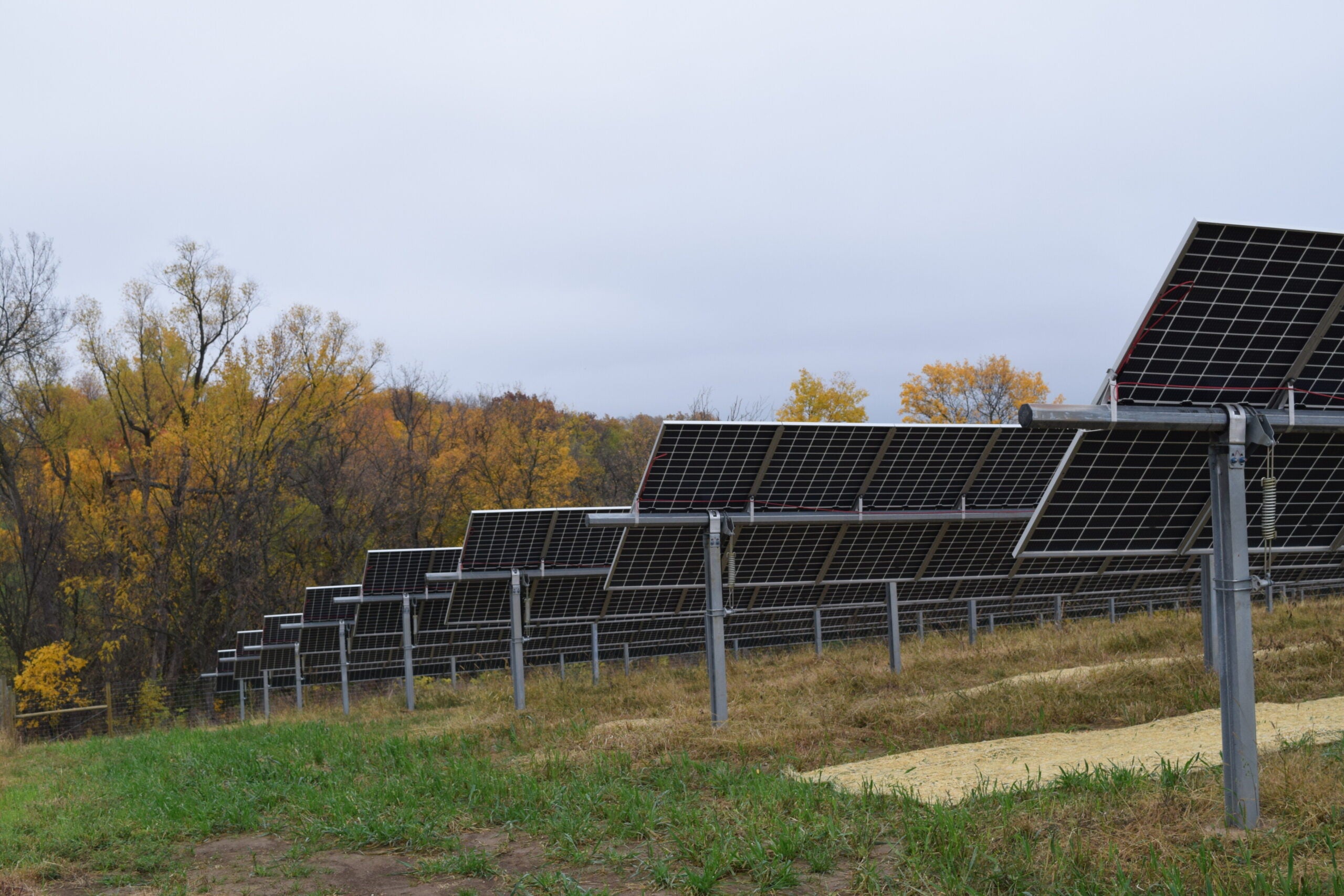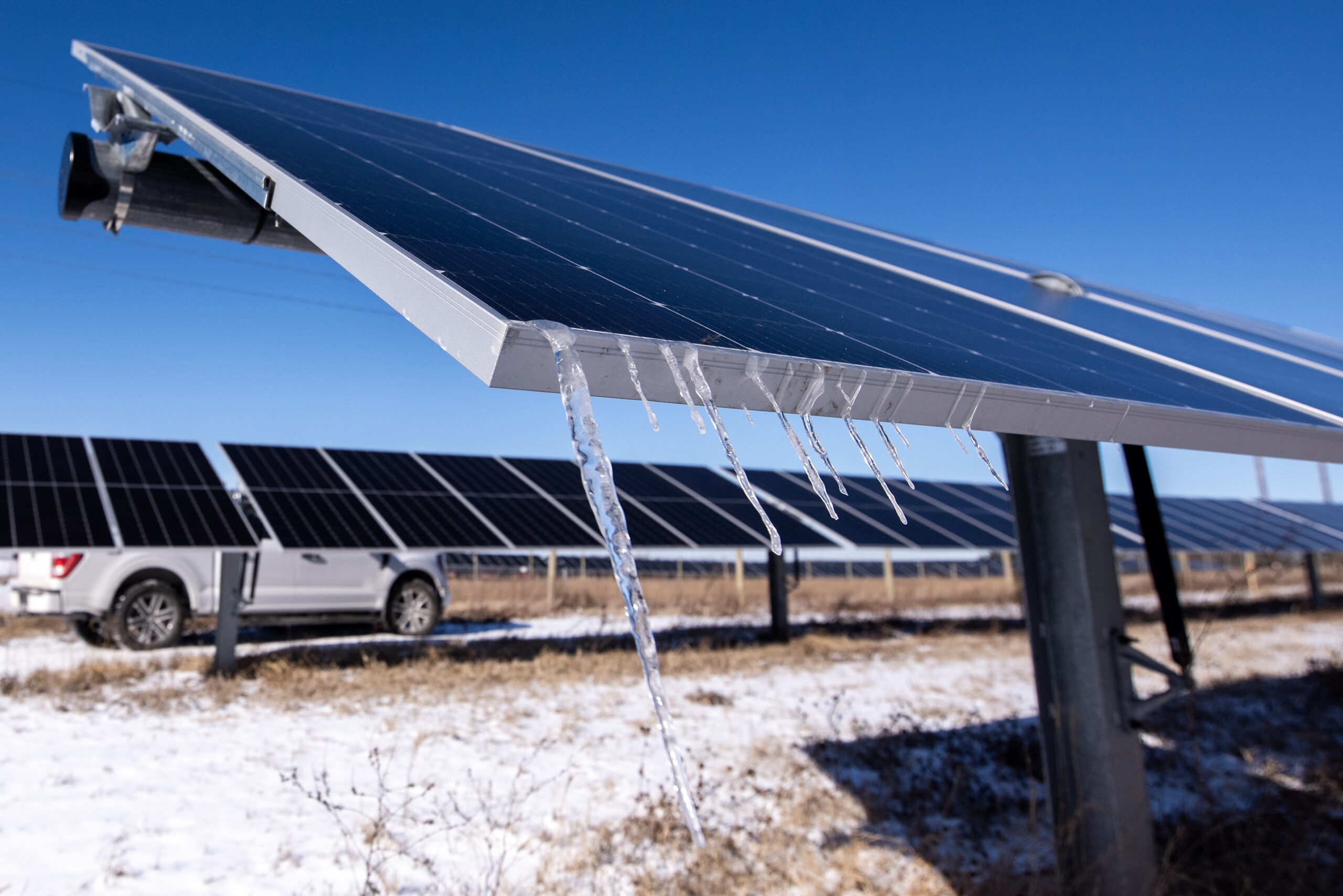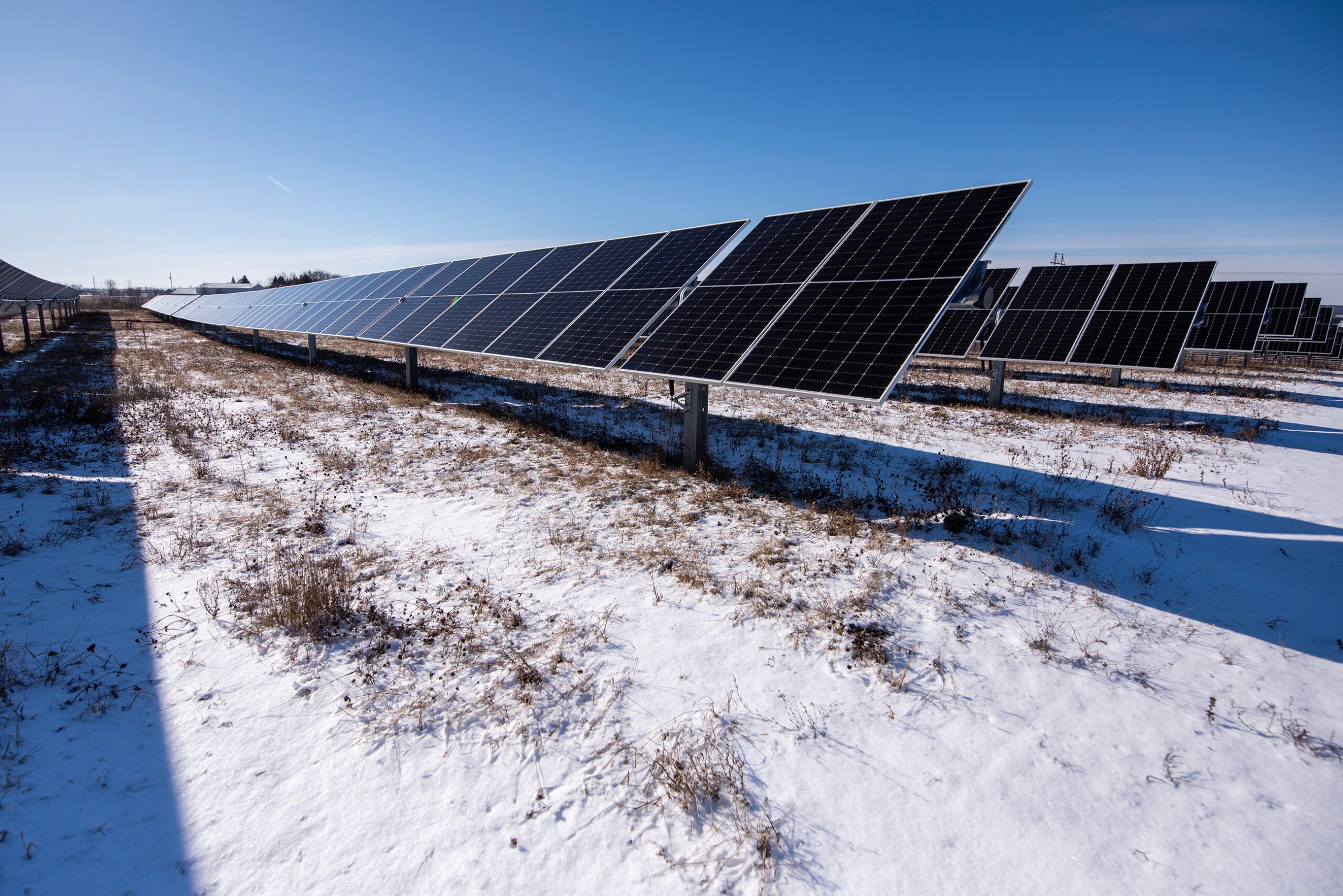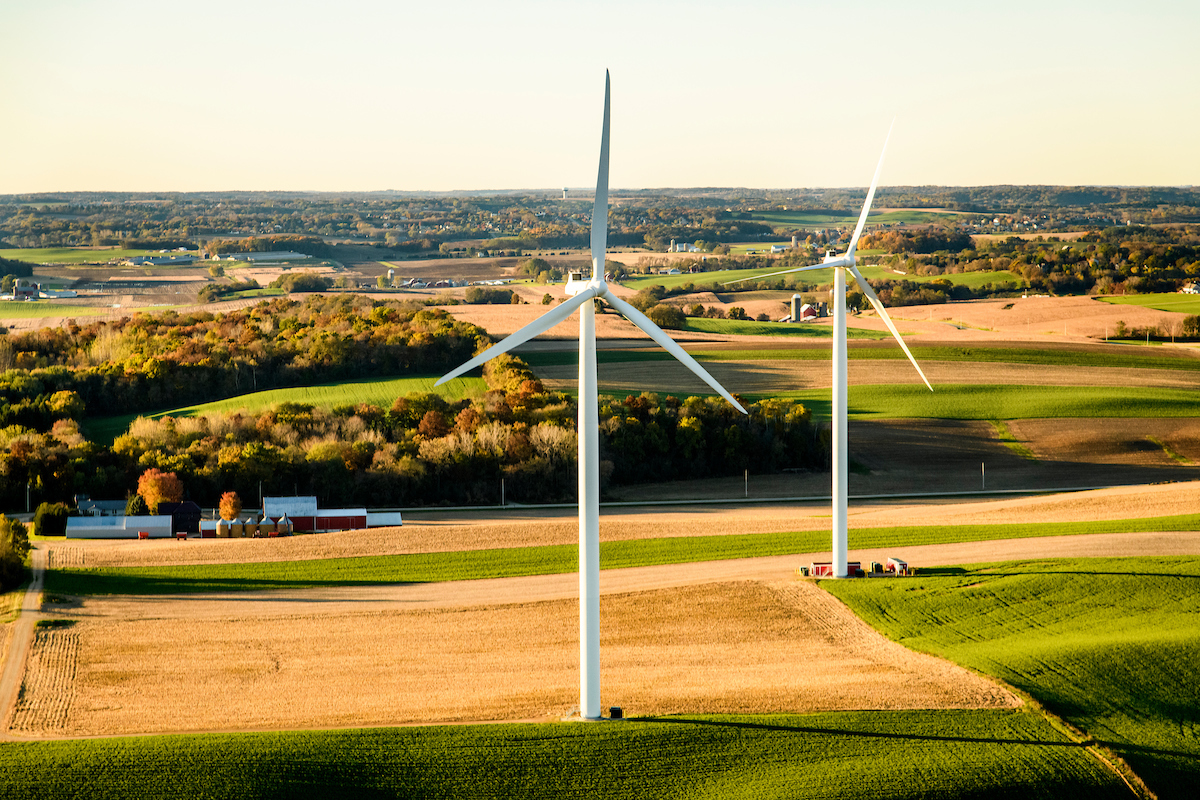Republicans in the state Legislature announced plans Tuesday to introduce a bill that would let Wisconsinites access community solar projects from developers that are not utilities.
But the state’s utilities argue the bill would give solar developers free access to the state’s energy grid at no risk, while shifting costs to utility customers.
According to the National Renewable Energy Laboratory, community solar — also called shared solar or solar gardens — allows customers to buy or lease part of a larger, off-site shared solar system.
News with a little more humanity
WPR’s “Wisconsin Today” newsletter keeps you connected to the state you love without feeling overwhelmed. No paywall. No agenda. No corporate filter.
In Wisconsin, regulated utilities and cooperatives are the only entities allowed to provide energy to customers from solar gardens, according to RENEW Wisconsin, a nonprofit that promotes renewable energy.
Andrew Kell, policy director for RENEW, said community solar is especially beneficial for people who don’t own their home or business’ location, or can’t utilize solar on their homes due to shade or other factors.
“They can definitely leverage community solar programs to access offsite solar power, to help reduce their bills and reduce their carbon footprint at the same time,” he said.
This is the second time GOP lawmakers have introduced a community solar bill in recent years. A previous version of the bill was introduced in 2021, but died in committee and faced opposition from Wisconsin utilities.
Lawmakers, developers seek support for community solar bill
During a press conference Tuesday, state Sen. Duey Stroebel, R-Cedarburg, said the bill aims to create more competition in the solar industry and lead to better rates for Wisconsinites.
He said the bill allows businesses, nonprofits and homeowners to see the benefits of renewable energy without spending tens of thousands of dollars to create their own green energy systems. Stroebel said 20 other states allow community solar.
“We can have community solar fill that void that we don’t have right now, in what is a monopolized business with our power generation,” he said. “It’s something that we need to get on board with in the state of Wisconsin, if we’re going to be looking out for energy rates for our consumers, our businesses and if we want to continue to stay competitive.”
The bill would also require local governments to approve community solar projects with a two-thirds majority vote, said state Rep. Scott Krug, R-Rome.
He said community solar projects are typically between 20- to 40-acres in size, much smaller than many utility-scale solar projects.
“These projects can be sited on somewhat unproductive farmland, marginal farmland, areas of farmland that people are looking for a little more sustainable returns on and even brownfields — allowing for landowners to diversify their properties without taking prime agricultural land out of production,” Krug said.
J.D. Smith, head of business development for Arch Solar, said the bill gives companies like his the opportunity to invest in community solar projects in Wisconsin — something they’re currently unable to do.
“We have the opportunity to not only grow our own business and grow our workforce here, but contribute to our neighbors, have a community-minded renewable energy generation system and have a robust green economy,” he said.
Currently, he says the Plymouth-based company sends its workers to states like Minnesota and Illinois to complete community solar projects.
Utilities express opposition to community solar legislation
The new community solar legislation is likely to face stiff opposition from the state’s utilities. On Tuesday, the Wisconsin Utilities Association, along with seven other entities, sent a memo to members of the Legislature asking them not to cosponsor the bill.
“The bill would chiefly benefit the out-of-state Community Solar developers at the expense of the ‘non-subscribing’ customers,” the memo states. “Meanwhile, the developers would benefit from using Wisconsin’s electric grid with no obligation to maintain service and reliability, to prove the generating asset is necessary or cost-effective, or to be a provider of last resort, as Wisconsin’s utilities are required to do.”
In a statement, WEC Energy Group spokesperson Brendan Conway said the bill is the opposite of a market-based proposal to advance renewable energy.
“It would force our customers to pay higher electricity costs by having them subsidize a few renewable developers who want to build ‘community solar gardens,’” Conway said.
Wisconsin Utilities Association Executive Director Bill Skewes added that many utilities already offer community solar programs. For example, Alliant Energy offers a community solar program in Fond du Lac and Cedar Rapids, Iowa, and is looking at other locations for future projects.
Skewes also said the bill doesn’t add competition to the state’s solar market because customers who don’t subscribe to a community solar contract would be subsidizing those projects.
“If you’re being served by a community solar farm, the utility that serves you still has to have the infrastructure and the capacity in place to keep your lights on when the sun’s not shining,” he said. “But because your utility meter isn’t spinning, your neighbors have to pay for your share of the grid so that you can be on community solar and that’s pretty unfair.”
While the future of the bill remains uncertain, RENEW Wisconsin said the state needs more options for consumers interested in renewable energy — whether it be third-party financing for solar, community solar or both.
“The costs of solar have come down over the years, but it’s still a significant upfront cost,” Kell said. “And if you are a not-for-profit organization, small business with capital investment constraints, a low-income residential customer or a moderate-income customer, it’s hard to oftentimes make that investment.”
Editor’s note: RENEW Wisconsin and Alliant Energy are underwriters of Wisconsin Public Radio.
Wisconsin Public Radio, © Copyright 2026, Board of Regents of the University of Wisconsin System and Wisconsin Educational Communications Board.







